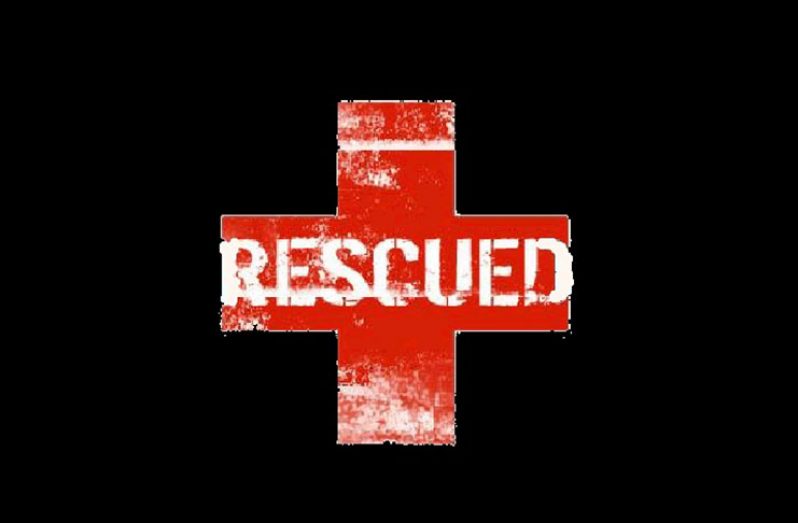…Spanish nationals among eight freed in West Dem, EBD operations
Eight alleged victims of Trafficking in Persons were on Friday night rescued during two operations on the East Bank and West Demerara by the Counter- Trafficking in Persons (C-TIP) Unit of the Ministry of Social Protection.Minister of Social Protection, Amna Ally confirmed on Sunday that the raids were carried out on Friday but she did not have all of the information at hand. Guyana Chronicle was reliably informed that seven persons several of them Spanish speaking were rescued from a popular Providence, East Bank Demerara night spot while the eighth person was rescued from a night spot on the West Coast Demerara.
It is unclear the nationality of the women rescued as there has been a history of victims of TIP coming from Dominican Republic, Venezuela, and Columbia, all of which are Spanish speaking countries. On Sunday night, those involved in the raid were providing statements to law enforcement officials and according to reports the women who were rescued are afraid.
“Yes, a raid was done in Region Three,” said the Minister of Social Protection who committed to providing additional information today. The raid follows a stern warning issued to human traffickers by President Granger last week. The President at the launch of National Plan of Action for the prevention and response to Trafficking In Persons (TIP) for 2017 and 2018 was launched.
The Head-of-State assured that all victims would be protected and all perpetrators punished while noting that “The Government of Guyana today is committed to reversing this indifference towards the crime of trafficking in persons. We will do so by enhancing education and strengthening enforcement in order to eliminate the scourge entirely.”
The President said his administration will tackle the issue frontally and not brush it aside as was done in the past. He noted that psycho-social services will be provided to victims as well as safe havens. Additionally, several wardens will positioned in hinterland locations where TIP is deemed prevalent.
“Traffickers must be identified and prosecuted with the full force of the law… The fear of prosecution must serve as a deterrent against human-trafficking. Guyana seeks to provide [the] ‘good life’ for all of its citizens. The ‘good life’ includes protecting vulnerable citizens from the threats of servitude, sexual exploitation and forced labour. Victims of trafficking in persons need protection. They are often helpless. They are often afraid to speak out. They generally lack resources to seek assistance. Many of the victims being held against their will may be illegal immigrants and, therefore, afraid to go to the authorities for fear of being deported or prosecuted. Victims of trafficking in persons must be protected and provided with assistance for their recovery and reintegration into society,” President Granger said, noting that it is necessary to “lift the veil of TIP.”
In May 2013, the President while serving as leader of the opposition he had brought a motion calling for a Commission of Inquiry (CoI) to investigate Trafficking in Persons here.
Like President Granger, Minister of Social Protection Ally said the time is ripe to put an end to the scourge. “We must say enough! No more to these acts!” the minister declared, as she reminded those gathered that human-trafficking is a callous industry that denies victims their basic rights and dignity, “so that heartless perpetrators can benefit financially from exploiting vulnerable victims.”
The Minister of Social Protection emphasised the need for protection of the human rights and dignity of all persons and stated that it is an essential component of good governance.
“I can assure you that our government will — by all means necessary– do what it can to curb this illicit trade,” she said, while noting that human- trafficking crosses cultures and has no boundaries. The minister noted that TIP is everybody’s business, while informing the audience that involuntary servitude is not to be ignored.
“We all have the responsibility to bring this practice to an end,” she said, adding that it is important to note that while law enforcement, cooperation and information-sharing can all be effective, ending human-trafficking also means tackling the root causes.
Meanwhile, Coordinator (ag) of the C-TIP Unit in the Ministry of Social Protection Tanisha Williams-Corbin said there has been an increase in the number of suspected TIP cases from 2014 to 2016. In a presentation at the launch of the national plan of action, Williams-Corbin said in 2014 there were 40 cases, five males and 35 females while in 2015, there were 59 cases with three males and 56 females. Last year there was an increase of 98 cases, 13 males and 85 females.
The acting coordinator of the C-TIP Unit noted that of the 197 identified victims from 2014-2016 the majority were females. She also reported that 89.3 per cent of the victims were 32 years and below while most of the victims were nationals. Non-nationals represented 41 per cent of the total number of suspected cases. Additionally, C-TIP Unit Coordinator said 44.2 per cent of the suspected cases occurred in Region 4 while 22.3 per cent occurred in Region 7. The National Action Plan intends to tackle TIP through prevention, protection, prosecution and partnership.




.png)









